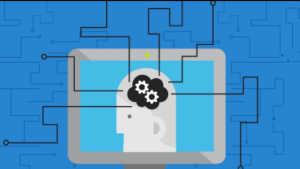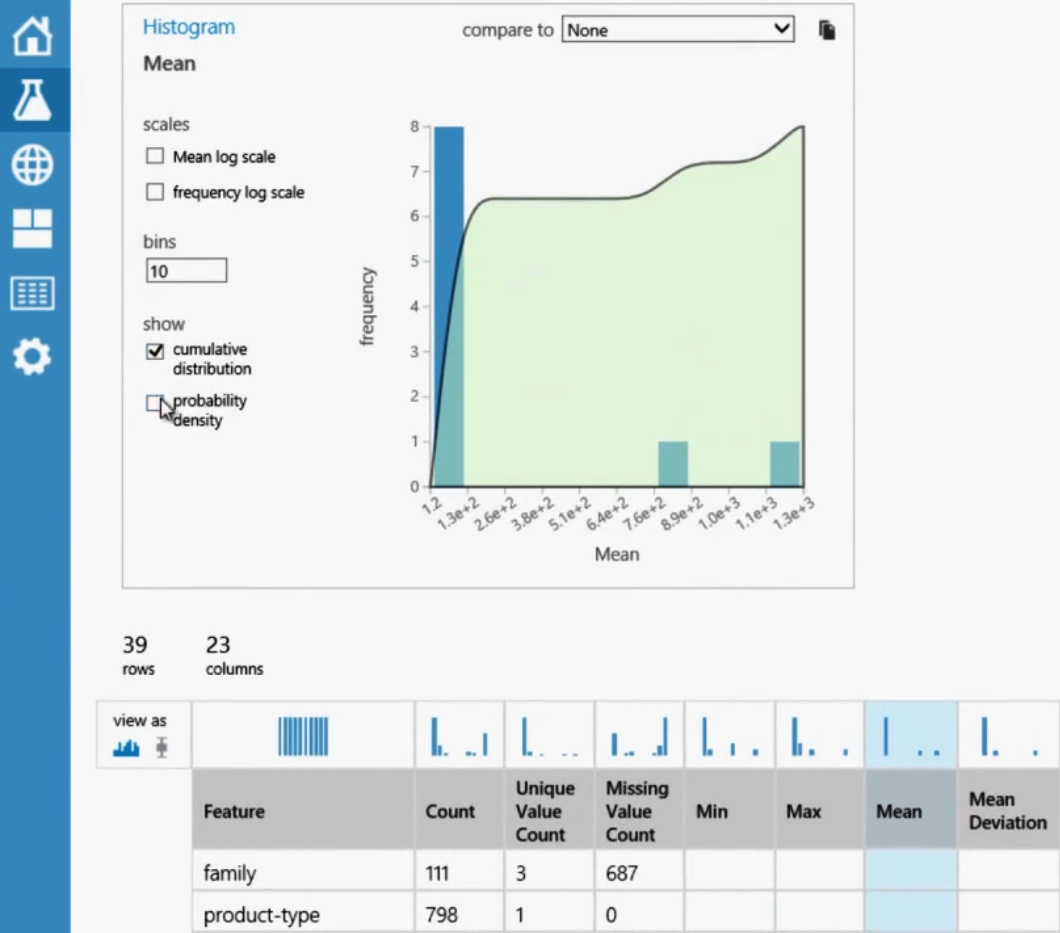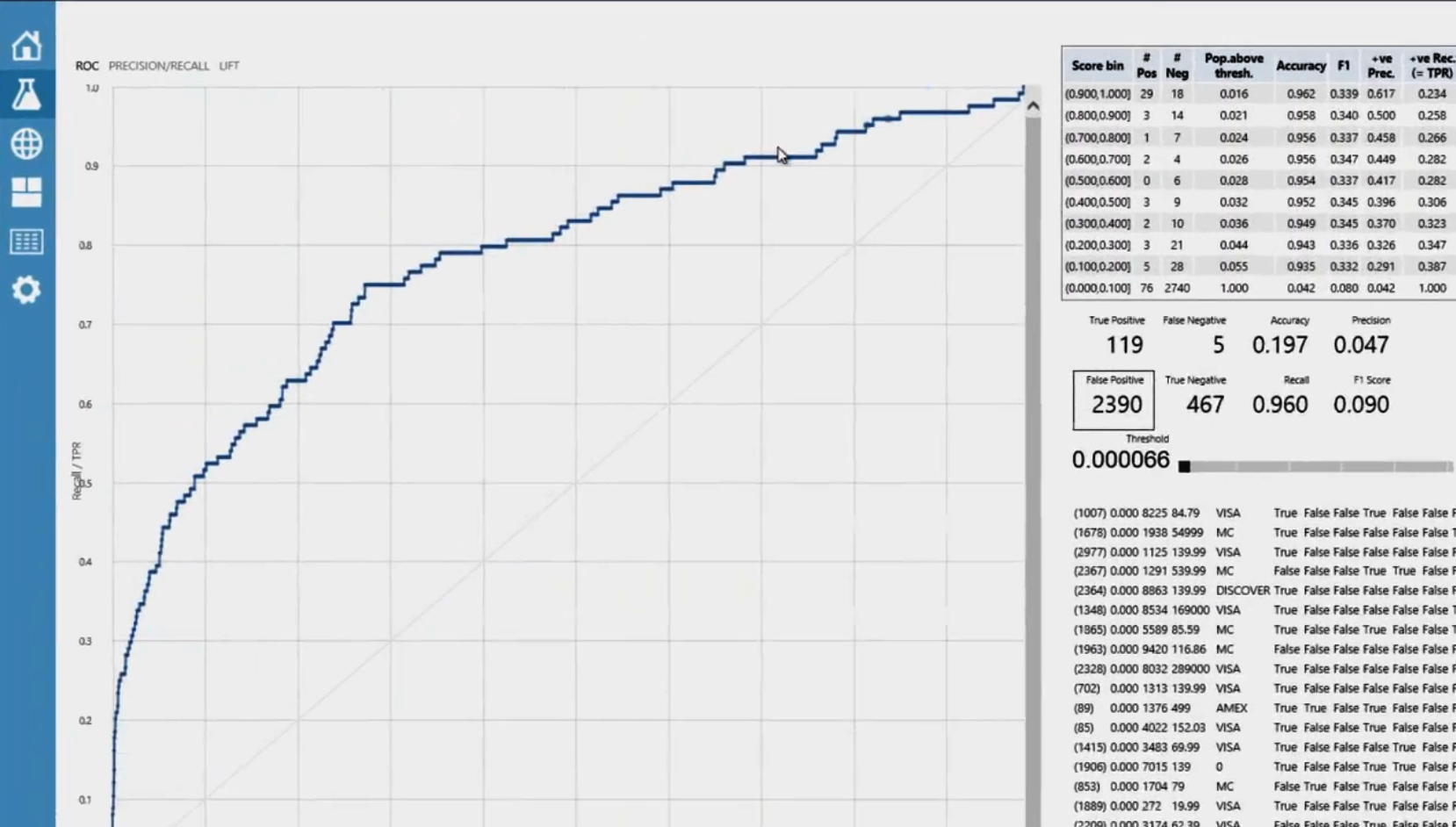
Microsoft Spins Up a Machine Learning Cloud

Microsoft today revealed Azure Machine Learning, a new hosted machine learning offering that will become available as a public preview next month. The new cloud offering is geared at helping data scientists get a powerful machine learning system set up and running in a short amount of time.
Microsoft Research has been at the forefront of ML research for years, but most of the R&D gains it has garnered have stayed within the company. The company’s ML expertise has been used to bolster outward facing Web services, such as Bing and Xbox, and been shielded from direct public consumption.
The company started showing off some of its ML expertise last month, when it announced the upcoming Skype Translate feature, which promises to deliver advanced speech recognition and language translation capabilities based on Microsoft Research’s investment in deep learning and neural networks.
With Azure ML, the company is gearing up to deliver a broader platform to allow data scientists to develop and run all kinds of ML-powered predictive analytics applications for companies in the healthcare, financial services, transportation, and retail industries.

Microsoft says Azure ML will help users build and run predictive analytic applications in an intuitive and visual manner.
Microsoft says Azure ML could be used to build predictive maintenance applications that can keep companies one step ahead of failing equipment. “Elevators never stall, oil rigs never malfunction, takeoffs are never delayed. Why? Because you fixed the problem yesterday,” Microsoft says in a YouTube video introducing the new service.
The company also challenges customers to “imagine a world without fraud. Azure Machine Learning allows you to put fraud detection modules in production with a single click to keep you one step ahead of criminals,” the company says. Likewise, predictive analytic applications can help retail chains “stock exactly what they need and nothing else” by leveraging purchase history data, demographics, and weather data. In healthcare, predictive analytics can be used to “eliminate unnecessary returns to the hospitals” by forecasting risks among large numbers of people.
Companies are already spending millions to build these sorts of big data analytic solutions, some of them on Hadoop, some of them on big parallel HPC platforms, and some using entirely different kinds of systems. What makes Azure ML unique, according to Microsoft, is the speed at which users can whip up a machine learning cluster and start generating useful predictions. Instead of taking weeks or months, predictive analytics apps can be spun up in hours, the company says.
It’s all about simplifying machine learning. Microsoft says it will provide visual workflows and startup templates for common machine learning tasks. Once the models have been built using historical data, customers will be able to tap into their predictive capability by calling their Azure ML applications via standard APIs and Web services.
“It is a fully-managed cloud service that will enable data scientists and developers to efficiently embed predictive analytics into their applications, helping organizations use massive amounts of data and bring all the benefits of the cloud to machine learning,” Joseph Sirosh, corporate vice president of machine learning at Microsoft, says in the company’s Machine Learning Blog.

It’s expected that Azure ML will include templates to help users build apps that help spot credit card fraud
It’s unclear exactly what products and technologies will underpin Azure ML. Microsoft has been using the Mahout machine learning library on its Azure-based Hadoop cluster build common ML applications, such as recommender engines, categorization, and clustering applications. It’s unclear if Azure ML will be based on Mahout and HDInsight, the Microsoft’s distribution of Hadoop, which it developed in close partnership with Hortonworks. There are indications that Azure ML could be based on the R statistical language.
Azure ML has been used by several early adopters, including MAX451, which is helping a large retail customer build a product recommender engine based on data collected from ecommerce and in-store transactions. Another Microsoft business partner, OSISoft, is working with Carnegie Mellon University on real time fault detection and the diagnosis of energy output variations across campus buildings.
Other early Azure ML adopters include Icertis, a Microsoft partner that develops “ERP-edge” products that run on Azure, and West Monroe Partners, a Seattle, Washington consultancy. “The standout benefit for us was to quickly build and test predictive models and verify their results. There is no cognitive overhead to learn new scripting or coding language,” says Yogesh Dandawate, a big data developer at Icertis. “Azure ML is the future of analytics,” says Corey Coscioni, a developer at West Monroe Partners. “It seamlessly brings together statistics/mathematics with ML, AI, and advances in data storage and computing.”
Related Items:
Deep Neural Networks Power Big Gains in Speech Recognition
Data ‘Exhaust’ Leads to Ambient Intelligence, Microsoft CEO Says



























